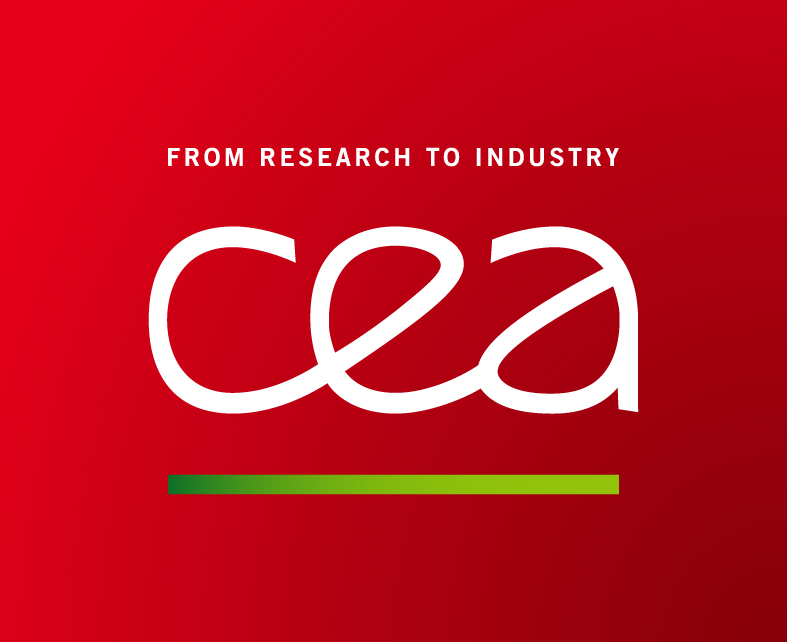 www.cea.fr www.cea.fr
| CEA (France's Alternative Energies and Atomic Energy Commission) is a Research and Technology Organisation (RTO) and a full member of EARTO, the European Association of Research and Technology Organisations. It is also an associate member of the Bio-based Industry Consortium. In the knowledge and innovation economy, RTOs have a distinct mission and a key role: they produce, integrate and transfer science and technology to help resolve grand societal challenges and to exploit opportunities for new wealth creation, improved standards of living, preservation and build-up of economic competitiveness. They occupy nodal positions in the structuration of innovation eco-systems in Europe, bringing together key players across the whole innovation chain, from fundamental to technological research, from product and process development to prototyping and demonstration, and forward on to full-scale industrial implementation. |
 www.sams.ac.uk www.sams.ac.uk
| SAMS is (i) a learned society with 450 ordinary members and an elected governing council; (ii) a Collaborative Centre of the Natural Environment Research Council (NERC) delivering strategic research and hosting UK national capability expertise and infrastructure for long term oceanographic time series, algal culture and scientific diving and (iii) an academic partner of the UHI Millennium Institute. SAMS is a registered charity in Scotland and is a UK company limited by guarantee and owns 2 subsidiary companies: SAMS Research Services Ltd (SRSL) and the European Centre for Marine Biotechnology (ECMB). Website: http://www.smi.ac.uk/ Expertise: SAMS has an international reputation in marine science with active research in ecology, biogeochemistry, physics, microbial & molecular biology. Activities focus on marine micro-organisms, including bacteria, phytoplanton, protozoa and other eukaryotic protists. A wide range of fundamental and applied research projects undertaken employ observational, experimental & modelling approaches to investigate the biology and ecology of microbes in coastal and ocean habitats from the tropics to the poles. |
 www.a4f.pt www.a4f.pt
| A4F - Algae for Future, SA is a spin-off from
A4F - Algafuel, SA aiming to develop activities beyond the scope of biofuels
from microalgae following the global trend in the sector and the international
scope of the business. A4F - Algae for Future, SA incorporates the knowledge
and experience of more than 20 years in the field of microalgae
biotechnologies, including research projects. It is a bioengineering company
which designs, builds, operates and transfers microalgae biomass industrial
production plants worldwide. In order to maximize the performance of each
process, A4F proposes an innovative approach through a gradual scale-up from
laboratory inocula up to the large-scale final plant. A4F has a unique track
record of industrial production of more than 15 different strains of
microalgae, ranging from freshwater to saline or hypersaline environments,
using autotrophic, mixotrophic or heterotrophic growth regimes and applying the
most appropriate, and industrially proven types of systems such as green wall
panels, tubular photo-bioreactors, conventional raceways and cascade raceways,
or fermenters. A4F combines these capabilities with relevant international
market knowledge and experience on microalgae marketing and sales, as well as
product development. Furthermore, A4F cooperate with our clients and partners
in researching and developing new, novel and innovative microalgae based
products and applications. Also, A4F supports the design and implementation of
marketing strategies for economic exploitation and commercialization of
microalgae products and applications in the global market. Our concept is the
development and production of different species of microalgae, and
microalgae-based products through biorefining, on an industrial scale and in a
sustainable and commercially profitable way, through different technological
solutions, from different needs, with different partners and for different
uses: food, feed, fiber, fertilizer, pharma and fuel, as a contribution to a
sustainable future. |
 www.kit.edu www.kit.edu
| The Karlsruhe Institute of Technology, briefly
referred to as KIT, is one of the biggest research and education institutions
worldwide. In research and education, KIT assumes responsibility for
contributing to the sustainable solution of the grand challenges that face the
society, industry, and the environment. KIT builds on the extensive experience
of its predecessors in EU‐funded research from more
than 1000 projects to date. The Institute for Technology Assessment and Systems
Analysis (ITAS) is an interdisciplinary research institute at KIT covering
technical, economic, environmental and social aspects. With more than 130
scientists it is one of the largest institutes among the KIT. ITAS investigates
scientific and technological developments with a focus on their impacts and
possible systemic and unintended effects. It produces analytical knowledge and
assessments of innovative technologies and processes in order to provide design
options for decision-makers. ITAS has long lasting experience in sustainability
assessment and LCA as well as in risk assessment and is a member of the
UNEP-SETAC Life Cycle Initiative, which is promoting Life Cycle Thinking and
the application of Life Cycle Assessment in science and economy on an international
level. ITAS is part of the algae community and has been involved in different
projects on micro- and macroalgae such as EnAlgae, HydroMicPro or Photofuel.
ITAS is part of the KIT platform for microalgae which combines several research
groups working on different aspects of the cultivation, downstream processing
and energy conversion of microalgae. Within these projects and the platform
ITAS was and is responsible for the sustainability assessment (including LCA
and risk asessment). |
 www.csic.es www.csic.es
| Spanish National Research Council (CSIC) is the largest public institution dedicated to research in Spain and the third largest in Europe. Belonging to the Spanish Ministry of Economy and Competitiveness through the Secretary of State for Research, Development and Innovation, its main objective is to develop and promote research that will help bring about scientific and technological progress, and it is prepared to collaborate with Spanish and foreign entities in order to achieve this aim. According to its Statute (article 4), its mission is to foster, coordinate, develop and promote scientific and technological research, of a multidisciplinary nature, in order to contribute to advancing knowledge and economic, social and cultural development, as well as to train staff and advise public and private entities on this matter. It has a staff of more than 13,000 employees, among these about 3,300 are permanent researchers and about 4,300 are pre- and post-doctoral researchers. The CSIC has 70 fully own institutes or centres distributed throughout Spain. In addition, it has 53 Joint Research Units with universities or other research institutions. There is also a delegation in Brussels and Rome. CSIC provides services to the entire scientific community through management of the Singular Scientific and Technological Infrastructures (ICTS) such as Calar Alto Astronomical Observatory, Doñana Biological Station, European Synchrotron Radiation Facility, Hesperides Ocean Research Vessel, Integrated Micro and Nanoelectronics Clean Room, Juan Carlos I Antarctic Base, Max Von Laue-Paul Langevin Institute and Sarmiento de Gamboa Ocean Research Vessel |

www.subitec.com/en | Subitec offers turnkey ready solutions for the production of phototrophic microorganisms based on the patented flat-panel airlift (FPA) photobioreactor (PBR) technology. Hereby, the FPA-PBR is available in three different sizes (6, 28 and 180 L). Therefore, process development, optimization and scale-up is efficiently performed from laboratory to industrial scale. The FPA-PBR distinguishes itself by the incorporation of culture turbulence directing compartments (static mixers).The basic idea behind these mixers is to constantly translocate suspended cells of phototrophic microorganisms through the different photic zones of the photobioreactor e.g. from the severely lit surface to the dimly lit or rather complete dark interior in dependence of the culture density. Although seemingly trivial, the technology allows for highly efficient production of phototrophic microorganisms which is due to the fact that light supply is superior compared to other systems and inhibitive effects of photoinhibition and photolimitation are reduced. In fact, achieved productivity and biomass concentrations were as high as 2.4 g dry weight L-1 d-1 (Thermosynechococcus elongatus) and 20 g dry weight L-1 (Chlorella sorokiniana), respectively. The technology is scalable and its perennial reliability has been proven for numerous pilot plants (in greenhouses and outdoors) with cultivation volumes ranging from 1.4 to 10 m3 and varying degree of automation. As of today, a first plant of industrial relevance (130 m3), completely automated, is finalized and started its operation for a high value product at the end of 2015, partially operated on solely artificial lighting. Besides the engineering, construction and operation of plants for the cultivation of phototrophic microorganisms from laboratory to industrial scale, Subitec is heavily active in industrially contracted, publically funded as well as self-financed R&D programs. Hereby, topics included amongst others the utilization of flue-gases / off-gases from CHPs and industrial ethanol production, the utilization of a multitude of artificial light sources for the enhancement of microalgal growth and product formation as well as integrated processes for the production of ω-3 EPA using different microalgae species. Comprising both, engineering and scientific competences, Subitec is an active member in the microalgal community looking forward to strengthen microalgal biotechnology by collaborating with strong consortia such as the one behind ABACUS. |
| PROTEUS: Contract research organization, subsidiary of
PCAS group. PCAS is a company dedicated to chemical synthesis in the domain of
APIs, fine and specialty chemicals. |
| MICROPHYT is a French biotechnology SME which researchs, develops, producesand market innovative natural bioactive products from microalgae. Its solutions are intended toadress the needs of personal-care, food and health-care industries worlwide, through a diffrentiated dans sustainabble approach. Proprietary technologies allow controlled and industrial-scale supply of microalgae biomass and extract. Industrial scale photobioreactors (PBR) developed and patented by MICROPHYT are designed to produce specific strains of microalgae by preserving cell integrity and yielding commercial quantities of slow-growing or biofilm-forming species. Therefore, these technologies enable MICROPHYT's customers to access innovative natural bioactive products from the untapped microalgae diversity. MICROPHYT owns currently 3 patent families and runs an industrial microalgae production platform which currently employs 10 persons. |
 www.sensient-cosmetics.com www.sensient-cosmetics.com
| Sensient Cosmetic Technologies is recognized as a leading supplier of high performance colorants and innovative ingredients. Sensient is committed to developing, producing and marketing high-quality ingredients and colorants to the cosmetics industry, providing cosmetic companies around the globe with a nearly infinite range of products. Sensient Cosmetic Technologies is a unit of Sensient Technologies Corporation, a leading global manufacturer and marketer of colors, flavors and fragrances, employing advanced technologies at facilities around the world to develop specialty food and beverage systems, cosmetic and pharmaceutical systems, inkjet and specialty inks and colors, and other specialty chemicals. Sensient Cosmetic Technologies manufactures the finest colorants and functional cosmetic ingredients for : Make-up, Skin care, Hair care, Personal hygiene, Oral care, Fragrance. Sensient Cosmetic Technologies offers a wide range of high purity ingredients and colorants specifically developed for personal care and in compliance with global regulations. Unparalleled application expertise, development and support will help you to bring your innovations rapidly to market.
|